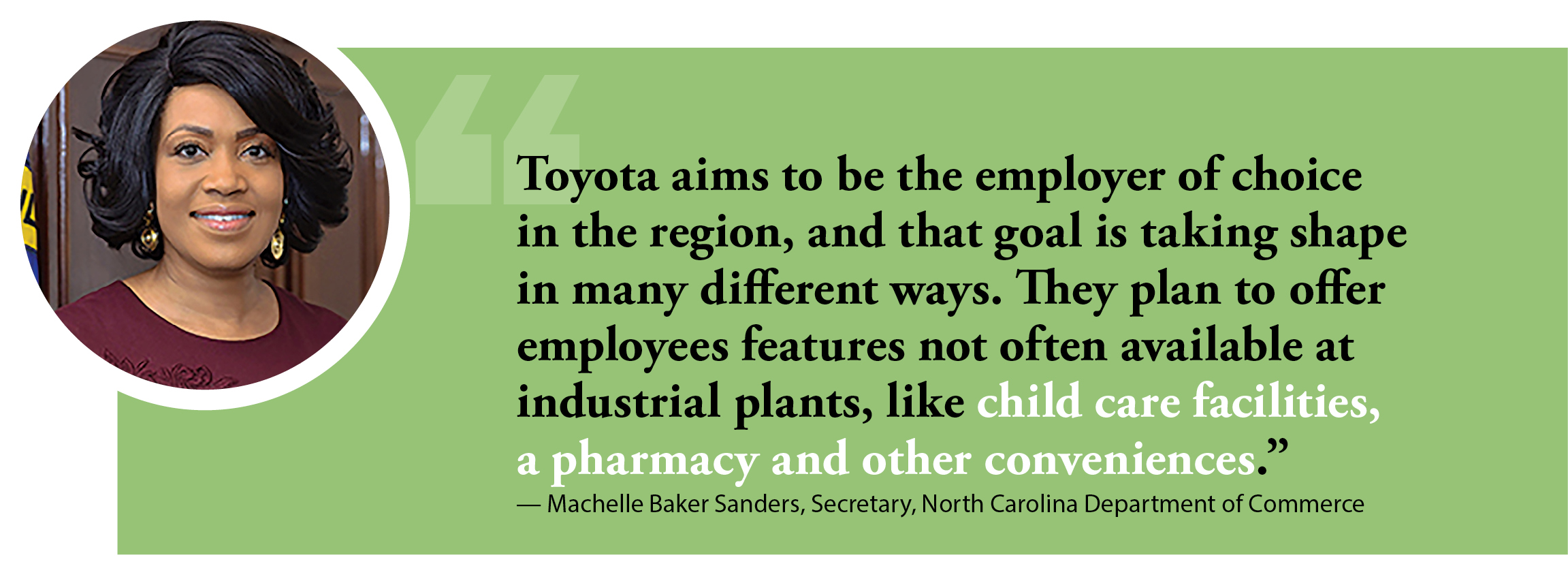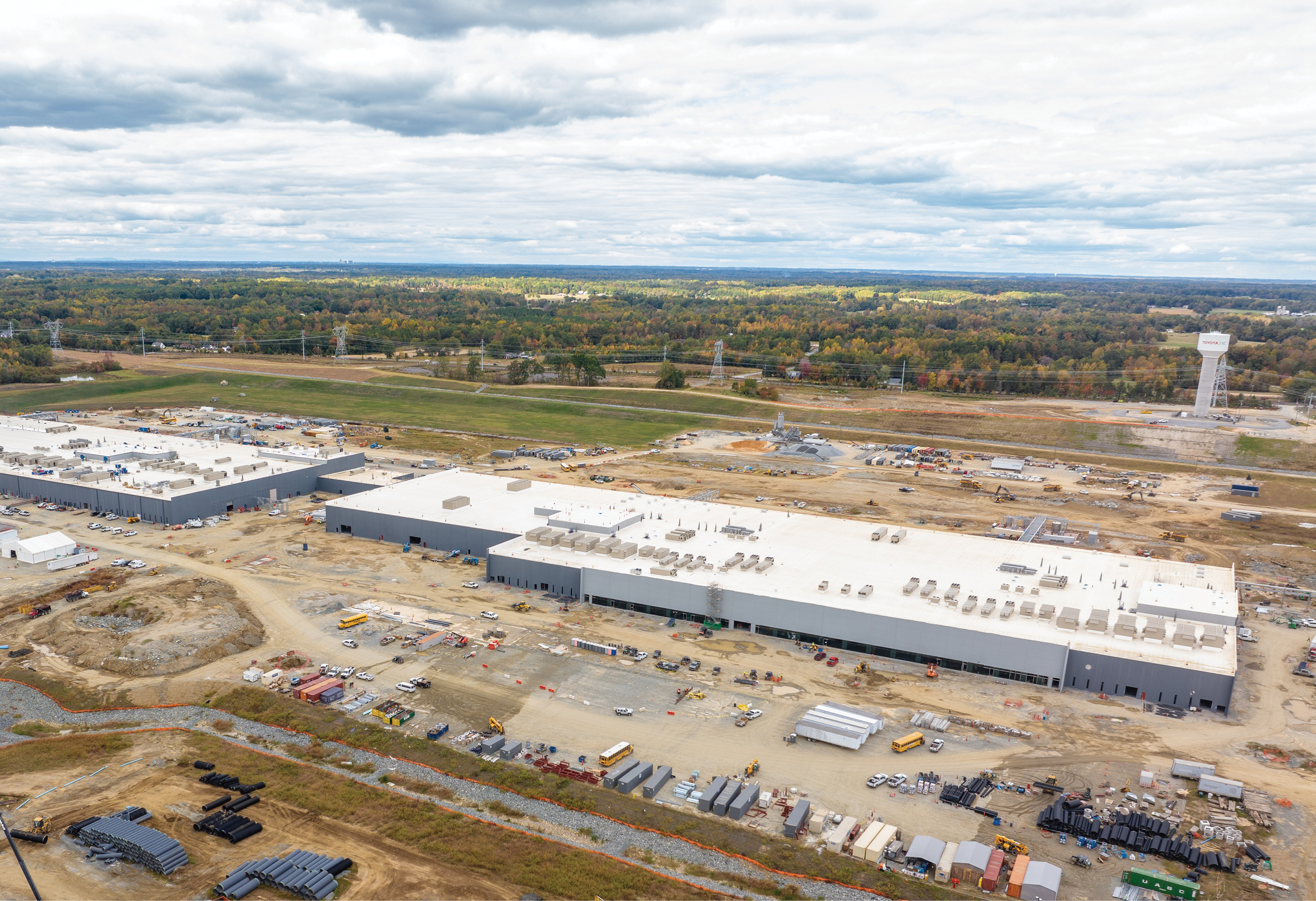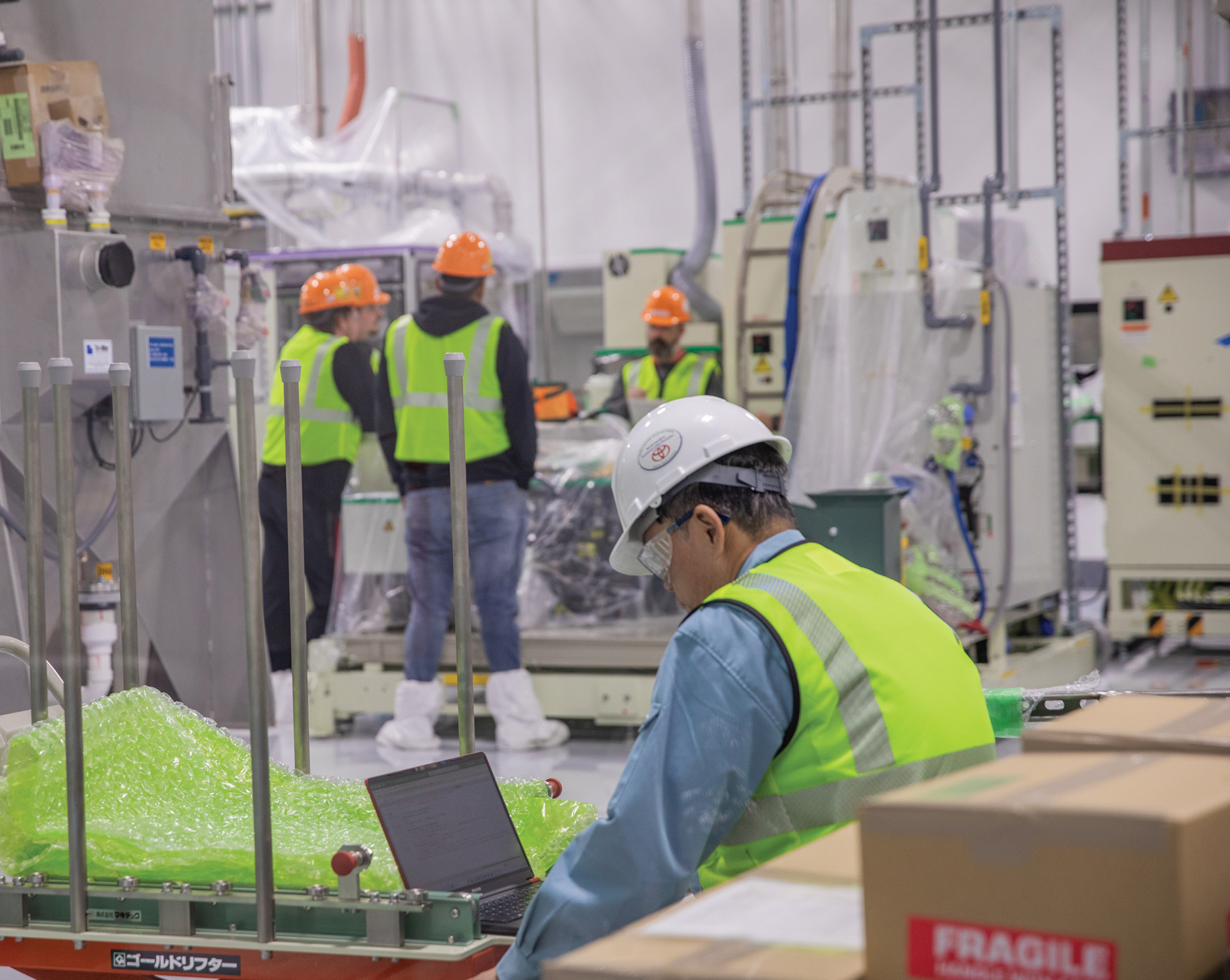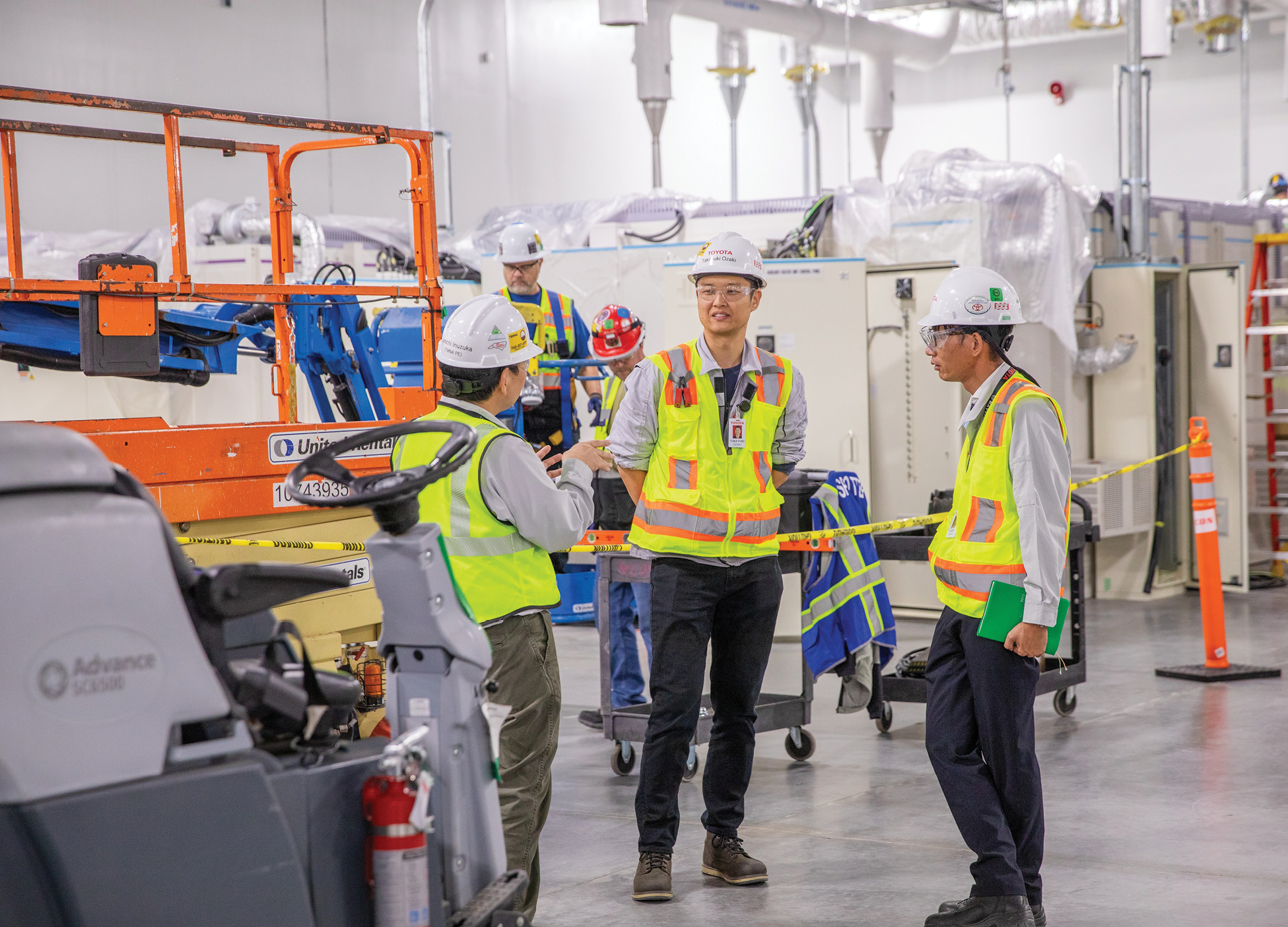As secretary of the North Carolina Department of Commerce, Machelle Baker Sanders has seen her share of heavyweight deals officially announced in the Tar Heel State. It’s safe to say she hasn’t seen one like this in a long time, if ever.
On October 31, 2023, Toyota announced that it will invest nearly $8 billion and add about 3,000 jobs at its new battery manufacturing complex being built in Liberty in Randolph County, North Carolina, near Greensboro.
The announcement brings total investment on site to $13.9 billion and ups the job creation to more than 5,000, according to Toyota, which noted in a statement that the project is being constructed to support the company’s “multi-pathway approach to global vehicle electrification.”
With jobs numbers like that, the obvious question becomes: Where will all the labor come from? Rather than speculate an answer, we went right to the top. We asked Machelle Baker Sanders herself, and here’s what she had to say.
What were the most important site selection criteria behind Toyota’s investment decision?
SANDERS: As in most site selection decisions, there were a range of important factors for Toyota, including the proactive way Gov. Cooper and other North Carolina leaders made investments to improve the site. Gov. Cooper’s leadership and vision for transitioning the state towards a clean energy economy played an important role. But certainly North Carolina’s skilled workforce, and the proven education and training systems that help maintain and grow that workforce, ultimately won the day.
What is the plan for finding and hiring the 5,000-plus new workers at the plant in Liberty?
SANDERS: Toyota aims to be the employer of choice in the region, and that goal is taking shape in many different ways. They plan to offer employees features not often available at industrial plants, like child care facilities, a pharmacy and other conveniences. Toyota has also stepped up in a major way to invest in community and education programs that will build additional capacity in the area’s workforce development system, such as a $1 million donation to North Carolina A&T University and Communities in Schools of Randolph County to support science, technology, engineering, arts and mathematics education. The company already has its own well-developed process for onboarding and training its workers in what they call the ‘Toyota Way,’ which is centered on the goal of continuous improvement or Kaizen, in Japanese parlance. Indeed, the company already has a training center up and running, testing applicants and providing a multi-week introduction to the company’s culture. More than 300 people have already been hired, and that pace will only increase in the coming year.

How will state and local programs play a part in the hiring process?
SANDERS: North Carolina’s workforce development system, NCWorks, is fully engaged to support the company’s hiring process and has been actively involved since before the company announced its project in North Carolina. This work includes initial screening, which is a service we offer many companies, and also includes engagement from the state community college system and its customized training programs. The curriculum is tailored to the precise needs of the company, and that work is also already underway.


What other incentives were part of this deal?
SANDERS: The State of North Carolina is supporting Toyota’s project in several ways, some of which are performance-based financial incentives directly to the company and some which go to improve the infrastructure at the site:
The incentives directly supporting the company are:
- A Job Development Investment Grant: Toyota could potentially receive an estimated $315 million from this grant, paid in increments over 39 years. Annual payments are only made after yearly performance audits to confirm job creation and investment targets have been reached and maintained.
- N.C. Community College System: $5,035,200 of in-kind support for job training.
- N.C. Department of Commerce: estimated $2,000,000 of in-kind support for recruitment, screening, and training of talent.
- N.C. General Assembly: A pool of $50 million to be paid to the company incrementally, based on audit confirmation of each job created over 3,875 up to 5,000.
The support for site improvements and infrastructure includes:
- Department of Transportation: $10,000,000 for road improvements.
- GoldenLEAF Foundation: $40,000,000 for site improvements.
- N.C. General Assembly: $495 Million, which includes $35M for more roadwork and $460M for site work and wetlands mitigation at the project site.
What does Toyota like best about the workforce that it is able to draw from in North Carolina?
SANDERS: North Carolina boasts the largest manufacturing workforce in the Southeast — nearly half a million strong. In addition to our highly diverse and skilled workforce, North Carolina maintains a business-friendly environment with a low cost of doing business, a supportive educational and workforce training network, with top-rated universities and colleges, and plenty of cultural diversity, entertainment and recreational activities for a variety of interests.
Secondly, according to the North Carolina Department of Commerce’s North Carolina Clean Energy and Clean Transportation Workforce Assessment, one out of every three workers in North Carolina’s energy generation, energy efficiency and clean transportation sectors have participated in an education or training program through the North Carolina Community College System. North Carolina’s clean energy workforce programs — such as apprenticeships, internships, certificate programs and curricula — are among the nation’s best and are heavily focused on equity. A few of our key programs include:
- NCWorks is a free job screening, recruiting, and training program for new and expanding businesses. Part of NCWorks is the Customized Training Program, where community colleges and businesses work together to curate customized curricula and technical training to fulfill each business’s workforce needs. In FY 2021- 2022, the NCWorks Customized Training Program trained more than 22,000 employees from over 550 companies across the state.
- North Carolina A&T University’s STEPs4Growth: Led by the largest historically black college and university in the nation, this clean energy workforce training program will span 16 distressed counties in the state and will set up sectoral partnerships in four areas — energy efficiency, renewable energy, clean vehicles and grid and storage — while establishing regional training centers at Halifax Community College, Martin County Community College, Guilford Community College, UNC Charlotte and Olympic High School in Charlotte.

